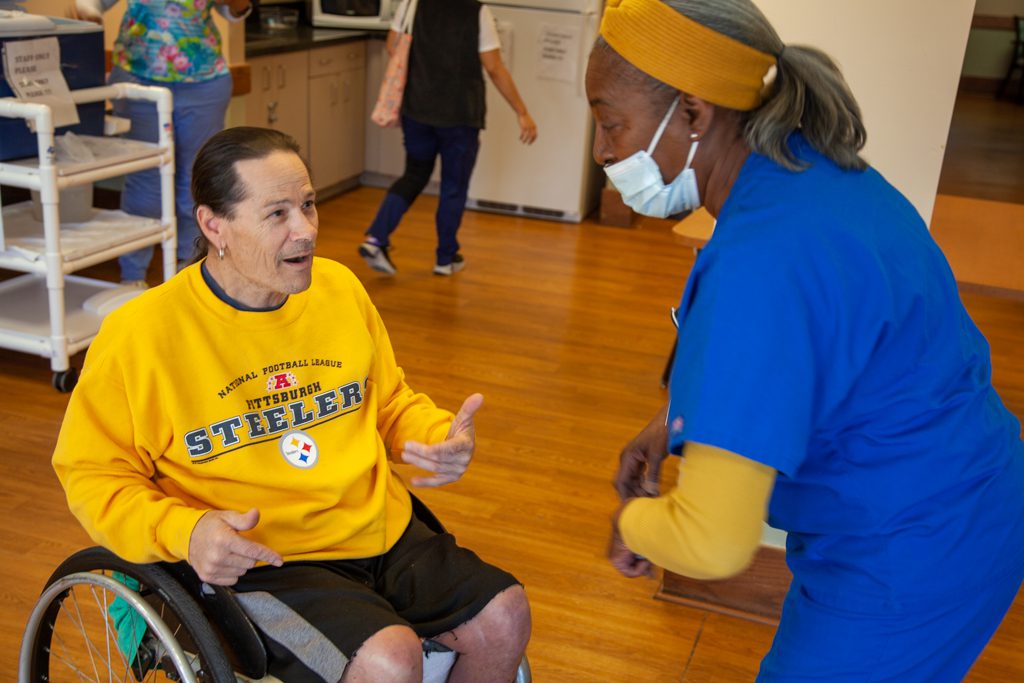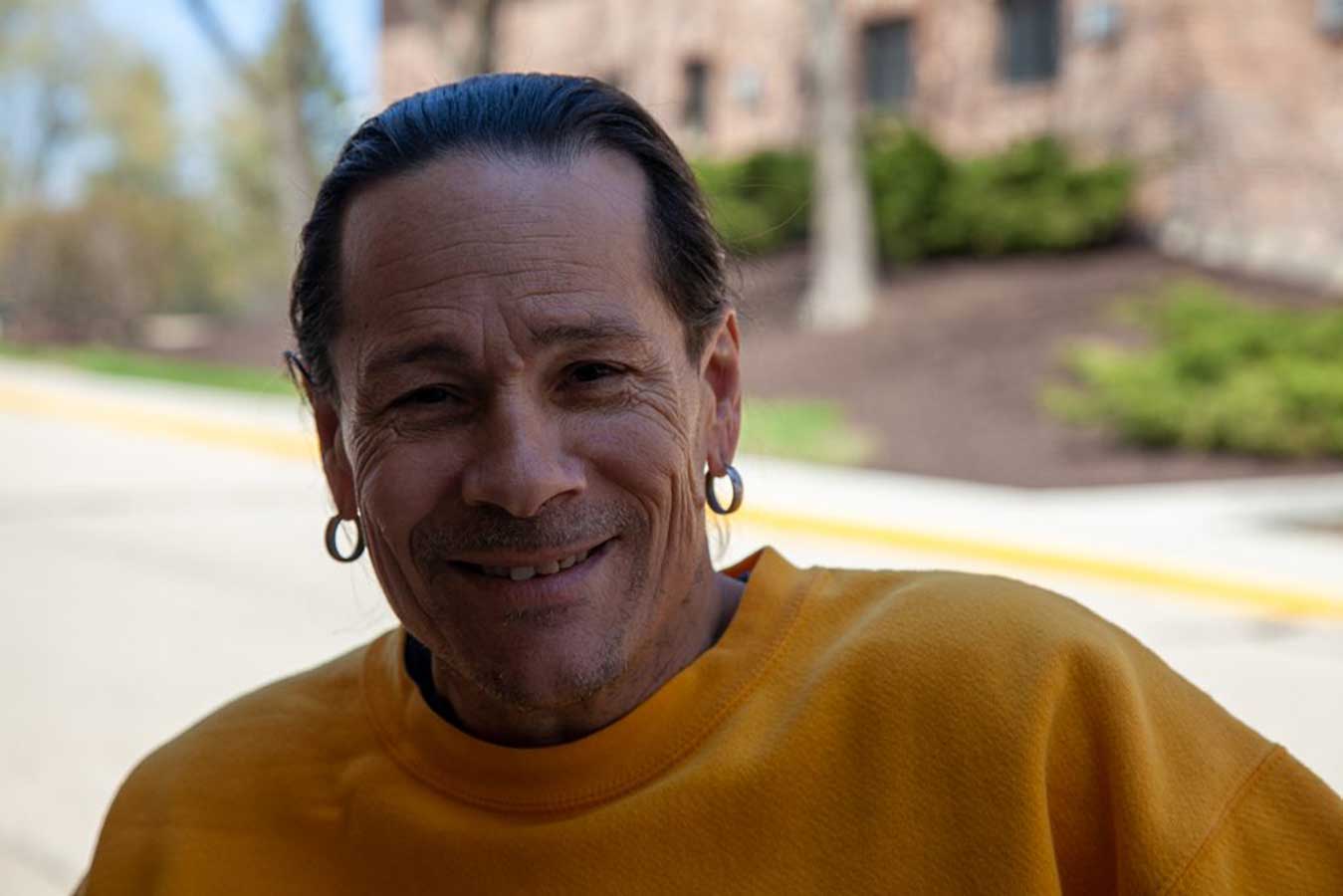Mark was a patient at a local hospital receiving treatment for sepsis. He reached a point where he was ready to leave the hospital but was not able to find a skilled nursing program that would accept him. He balked at staying in an acute hospital setting with no end in sight. The former surfer could not leave the hospital to go outside even for a few minutes, and his rehabilitation was stalled. The solution? A move to Luther Manor’s Advanced Transitional Care Program (ATCP).
The care that Mark and others like him receive in the ATCP began in 2021 when Luther Manor partnered with a local health care system. Because of this leading-edge approach, Skilled Nursing News, a national industry magazine, named Luther Manor one of five skilled nursing providers across the nation to watch in 2023.
What is the ATCP?
In simple terms, it goes like this: patients with complex needs receive acute care in the hospital. When they reach a point that they no longer require acute care but have not recovered enough to return home, they may qualify to move into Luther Manor’s ATCP for a short-term stay. Luther Manor provides care and varied services while plans for their final stay are resolved.
Why the addition of a complex care program? Over the past few years, the long-term care landscape has shifted. Medicare and managed care plan providers have reduced the amount of time a patient can receive rehabilitation making for shorter stays in our program. In addition, the rate at which Wisconsin Medicaid reimburses providers for care is among the lowest in the nation. In response to the shortfall in income, many other skilled nursing centers have closed, reduced their units, or only accept patients with Medicare and those having less complex conditions. Luther Manor made the decision to leverage our skills and abilities to serve a new population of patients in need. In doing so, we are meeting a critical need in the community and expanding our mission.
With a smaller pool of skilled nursing beds in the region, a growing number of patients like Mark do not have access to the rehabilitation and social services that they need after a hospital stay. These patients often have complex care needs: behavioral health needs, specialized care or equipment requirements, challenges with guardianship, no capacity to pay for care, and/or a pending Medicaid application.

In Mark’s case, the needs include ongoing care for a wound that led to the sepsis; paraplegia from a tree fall in 2012 while working as a landscaper; and shoulder pain from arthritis and torn rotator cuffs that make it hard for Mark to transition himself into his wheelchair. Mark also spent a year living in his car prior to the hospital stay and does not have family members who can support him physically, emotionally or financially.
For some patients, like Mark, their only option is “living” in the hospital indefinitely. Not only does this drain the hospital of its resources, it can be harmful to the patients. They become stuck in a sort of limbo, in need of socialization, rehabilitation, social and financial services, life enrichment, and pastoral care. Their health often declines as they wait for a transitional program to accept them. For those who find placement, the delay in their rehab can lead to rehospitalization.
Mark hopes to move into a studio apartment someday soon. In the meantime, he continues to receive weekly wound care from a visiting doctor and ongoing care and support from a staff of nurses and CNAs, all of whom he praises.
“Some of them are angels masquerading,” Mark said.
How does the ATCP benefit Luther Manor?
Luther Manor’s ATCP assists patients like Mark and local hospitals, but it also supports the entire Luther Manor community. Aside from helping Luther Manor financially sustain itself, nurses and CNAs have advanced their skills as a result of caring for more complex patients. These are the same clinical staff members that provide care for patients in other short stay rehabilitation programs.
“When residents here come through rehabilitation, they should have significant confidence that we are able to help them heal,” said Stephanie Chedid, Luther Manor President & CEO.
The ATCP also reveals Luther Manor’s mission to share God’s love by enriching the lives of older adults. “Our mission doesn’t say that we only take the easy cases or just the rich people,” Chedid said. “A focus on enriching the lives of ALL older adults provides Luther Manor with the flexibility to meet the market and the demand as they change over time.”

